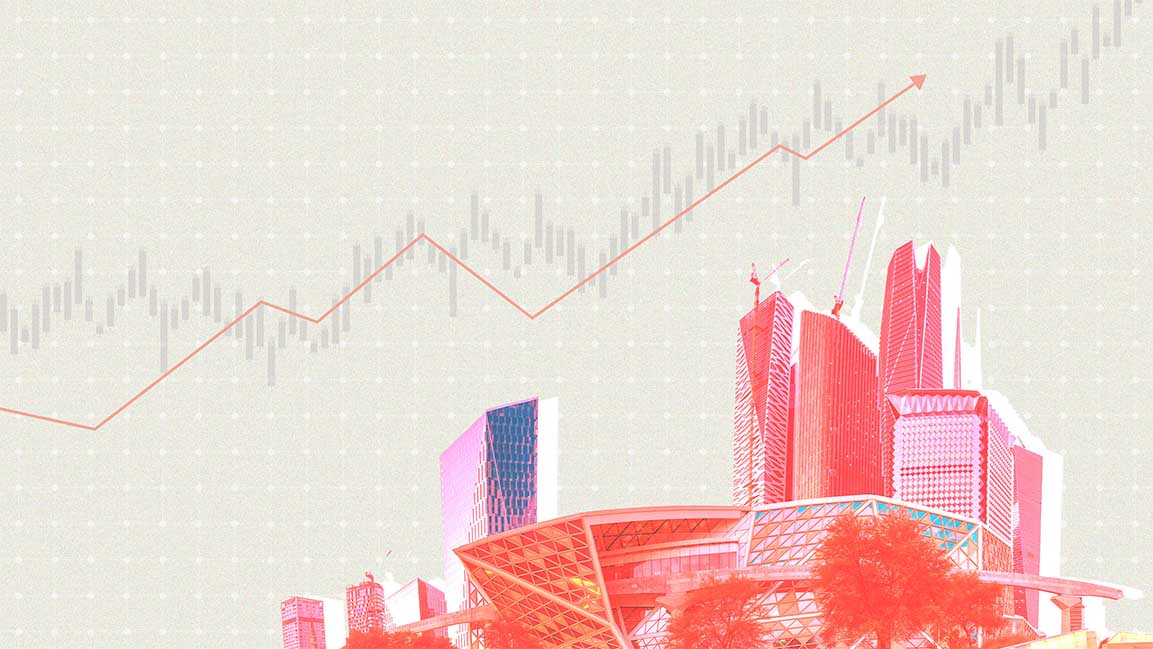- | 2:00 pm
Saudi Arabia’s non-oil economy remains robust, with March PMI at 58.7
Saudi Arabia's private sector output and the establishment of new firms both increased significantly.

In March, Saudi Arabia’s non-oil private sector economy remained robust as output and new business continued to expand, with rapid job creation and business spending.
The latest S&P Global Saudi Arabia PMI survey, now called the Riyad Bank Saudi Arabia Purchasing Managers’ Index (PMI), showed the kingdom’s metric at 58.7, a clear sign that economic diversification is making steady success.
The index states that PMI values over the 50-point level indicate non-oil private sector expansion, while those below 50 indicate contraction.
However, according to the latest PMI data, businesses are “struggling” to pass on their higher costs to their clients.
Selling prices rose “marginally” in March due to the heavy competition and consumer pushback.
“Business conditions remain strongly positive at the end of the first quarter of 2023 as improving market conditions and increased development spending helped to boost demand in the non-oil private sector,” said Naif Al-Ghaith, chief economist at Riyad Bank.
The Kingdom’s PMI, however, marginally slowed down from February, when it reached a record high of 59.8. The kingdom’s PMI stood at 56.9 last December and 58.2 in January.
The recent increase in Saudi Arabia’s PMI has also assisted the kingdom in lowering its jobless rate.
The PMI survey also noted that Saudi Arabian non-oil companies saw a sharp increase in new business intakes in March due to improving market conditions. Increased development spending helped boost demand. Some businesses also believed that a relatively mild increase in output prices had supported sales growth.
“Non-oil firms continued to see a strong improvement in demand from foreign customers for two reasons. First, the improvement in the industrial landscape has created positive grounds for producers to diversify their production lines and compete in foreign markets, enlarging their market share. Secondly, the recent depreciation of the US Dollar made those goods more affordable and accessible to a number of inflation-torn economies,” said Al-Ghaith.
Al-Ghaith further noted that the kingdom’s pro-business policies and rising demand levels encourage business optimism among Saudi Arabia’s non-oil enterprises.































